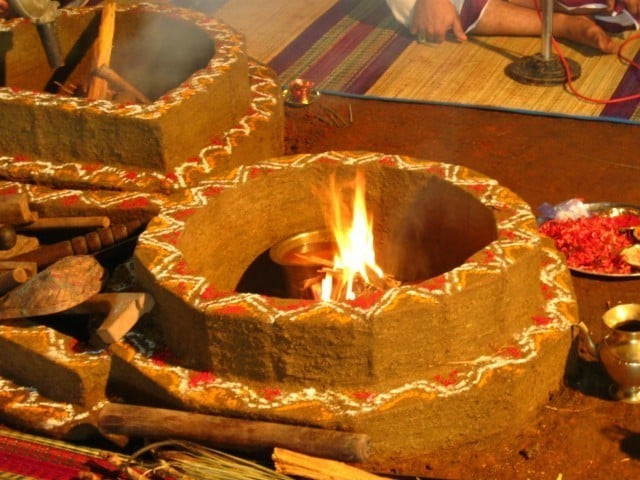Eroding history: City of flowers sheds its social ethos
Many Hindu localities in the city have been renamed.

PHOTO: FILE
A signboard has been put up at the entrance of Krishan Pura – a middle class neighbourhood located near Gulbahar along the Grand Trunk (GT) Road – bearing the name ‘Darul Islam’ in bold letters, with Krishan Pura in smaller font.
The renaming of the locality to Mohallah Darul Islam (Abode of Islam) is part of an effort to subvert the multicultural past of the city, Muhammad Ibrahim Zia while talking to The Express Tribune said, “The renaming of places has been going on for quite a while in Peshawar.”

Zia recalled that Bilal Town, which is adjacent to Krishan Pura, was known as Nanak Pura before its name was changed. “Jeevan Mal Street in Rampura was renamed Mursaleen Abad as well,” Zia said, adding Dhoni Chand Street, on the other hand, still carries its original name.
Similarly, Gorakh Dibbi spring on Warsak Road, where locals used to take their children to bathe to cure measles in the bygone days, was renamed Khushal Bagh. Panj Tirath area near the Khyber-Pakhtunkhwa Chamber of Commerce building, which according to prominent archaeologist Dr Ahmed Hassan Dani is linked to the five sons of Phandu – the heroes of Mahabharata – was renamed Chacha Younas Park. Kachi Galli near Rampura was also renamed Chaka Galli.

The city still has some remnants of its multi-cultural past. Rampura, located on the other side of GT Road, has managed to retain its original name. However, Rampura Chowk was not as lucky and became Milad Chowk instead.
Peshawar has three of its 16 gates named after Hindus, including Rampura and Asamai. Seth Ramdas was a treasurer under Sikh rule, thus Ramdas Bazaar and a city gate are named after him. Similarly, Asamai Gate was named after a Hindu temple in the area, known by the same name. A Hindu resident of the city, requesting anonymity, criticised the practice of renaming localities. “If someone constructs something new, then they can name it whatever they like. However, it is wrong to rename old monuments and places.”
Interestingly, an old map of the city dating back to the 1920s shows most of the inns named after Hindus, including Sarai Lala Harji Mal, Sarai Lala Karam Chand, Lala Kirpa Ram, Dheru Mal, Rai Sahib Murli Mal, Sardar Bahar Dehnat Rai, Nika Mal, Karam Chand and Dewan Chand. Now, no trace of these inns can be found.
Such attempts at renaming old city neighbourhoods and landmarks are at odds with the historical ethos of Peshawar, a city having its roots in antiquity. Its name itself is said to be a derivative of the Sanskrit word, Pashpapura – meaning city of flowers.

Peshawar witnessed its bloom in about 50AD under Kanishka, a Kushan king who made the city his winter capital. Most of the Ghandara treasure at display at Peshawar Museum also belongs to the Kushan period.
Unfortunately, the change is evident from the graffiti along the walls of the renamed Krishan Pura: ‘Bharat aur America se Rishta Kiya/Nafarat Ka, Intiqam ka’ (Our relationship with India and America is one of hate and revenge).
Published in The Express Tribune, April 10th, 2014.













COMMENTS
Comments are moderated and generally will be posted if they are on-topic and not abusive.
For more information, please see our Comments FAQ